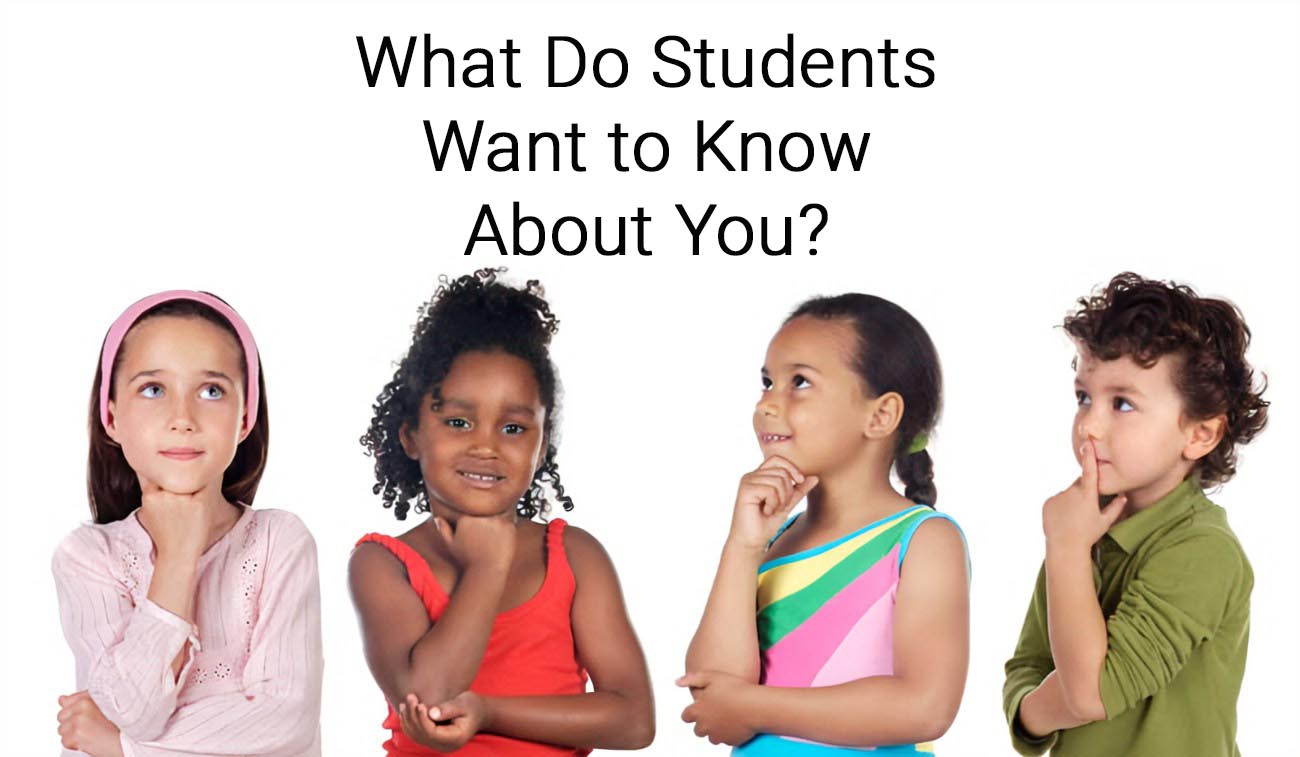When you face a classroom of students, they are immediately sizing you up. My father used to say, “First impressions don't count, people usually wait sixty seconds before they have you completely understood.”
So what do kids want to know about you?
Do they want to know where you live or where you went to school?
Do they want to know your GPA or the highlights of your curriculum vitae?
Do they want to see your wedding pictures, vacation pictures?
Some teachers share way too much personal information with students. Better to keep your personal cards close to the vest and share personal stories when they mesh with a point you’re trying to get across in class.
Know that when kids walk into your music room, you were just the next in a long line of successive music teachers that they've encountered or will encounter: some good, some bad, never indifferent.
They’ve been collecting data. Now you’re their specimen.
Here are some of the things they want to know about you.
Confidence
Kids want to know how quietly confident you are about your skills as a musician and teacher. They want to feel safe and the way you project confidence will go a long way to assuring them that it's not just about that you've “got the skills to pay the bills” but that they can trust you and depend on you.
Groove
They want to know if you have a sense of rhythm, and if you can convey that sense of rhythm both vocally and instrumentally.
What Are You?
They want to figure out if you see yourself as a teacher or as a musician.
There's a big difference.
Music teachers who see themselves primarily as teachers have a way of being supervisors, passers of judgement, season ticket owners of the highest seat on a pedestal with their classes beneath them.
Musicians, on the other hand, tend to be on the same level as their students.
Think of the musician’s world as a long road.
A music teacher who sees himself or herself first as a musician will picture himself or herself on the same road as his student, with the teacher just a little further down the road than where the students are.
Skill Set
Kids want to know if you can actually make the music with your hands and voice or if you have to rely on technology.
They will definitely judge you on this.
A Funny Thing Happened on My Way to the Classroom . . . .
They want to know if you have a sense of humor, if you can be funny and most importantly if you can laugh at yourself.
Just how thick is your skin and how ticklish is your funny bone is important to them.
Don’t Hate the Player, . . . .
Students want to know how prone you are to misdirection, how easy a mark are you, how easily you can be played.
Notice I didn't say IF you’re prone to misdirection, because all of us as teachers are occasionally misdirected by students.
I am reminded of the advice Michael Caine gave to actors: “Never, never blink, it's a sign of weakness”.
As music teachers, when kids try to redirect us, it's a good idea to curtail all blinking, especially when kids try this next misdirection ploy.
The kids’ favorite tactic in redirecting the teacher is by asking question.
This might be news to you but you don’t have to entertain every raised hand and question in real time.
I routinely snapped, “Put your hand down! Do not interrupt!”, “Do you see a sign saying interrupt the teacher whenever you feel like it?”, or “Did I ask a question?”
When we would go to “Go” time, and the kids were on break, I would always ask the questioning student what was it that he wanted to say.
After a while, kids figured out that raising their hand was not an immediate way to redirect me. In fact, it was a way to potentially attract my ire.
Lean In or Fall Back
Kids want to know if you lean into situations or fall back.
When a behavior situation needs addressing, it's better to be prepared and be ready to lean in rather than to look indecisive and fall back.
Sometimes, giving the impression of leaning back while being proactive is the best approach.
It’s also important that you, as the teacher, are not there to be King Solomon and arbitrate and solve every problem, especially when kids should be empowered and instructed in ways to solve their own problem.
This next thing that kids want to know about you is the one that you've really got to impress upon kids and you really can't do it in your classroom with them because they're all the same age.
We’ll cover the remaining top three things kids want to know about you in “What Do Students Want To Know About You? - Part Two”.

 RSS Feed
RSS Feed